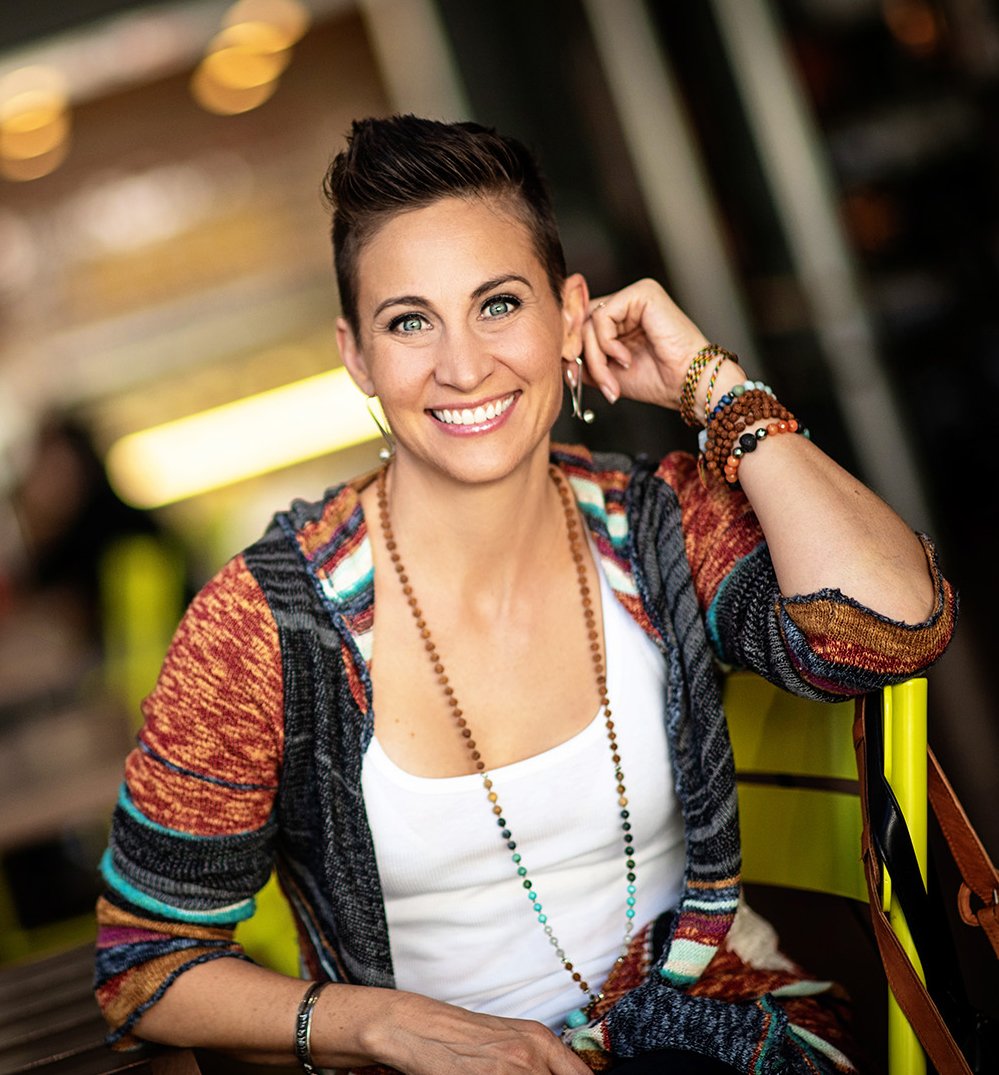Social Three — "Prestige"
The Social Three has a desire to be seen and to have influence with people. This three acts out in vanity through the desire to shine before the whole world: Social Threes enjoy being on stage. This subtype is the most vain of the Threes, and the biggest chameleon.
The name given to this subtype is "Prestige," which reflects the idea of needing everybody's admiration and applause. This Three, more than the other two subtypes, likes and needs to be recognized, so they tend to be more out in front, basking in the spotlight. As children, it was typically important for Social Threes to "show" something, to look good and demonstrate competence in doing things, to get love. Support most likely came in the form of an approving "look" from parents.
This quick reference guide captures the various aspects of each Enneagram Type including attributes, basic fears, desires, passions, virtues, fixations, defense mechanisms, and more!
Social Threes are socially brilliant. They know how to talk to people and how to climb the social ladder. These Threes feel a need to frame words carefully to get the maximum benefit, which is measured in terms of making the right impression, getting what they want, and reaching their goals. Their fuel is social success, though what exactly constitutes "success" can vary depending on the history and context of the individual Social Three. Some show intelligence, culture, or class; others have degrees and titles; and others have material symbols of social status - a nice house, an expensive car, designer clothes, or expensive watches.
The Social Three is very concerned with competition and winning. This is the most competitive Three. They are also focused on power, whether or not they are the one who has it. They tend to be demanding and authoritarian, though these characteristics may be hidden behind a presentation that is smooth, decorous, and humorous. Social Threes may view others in terms of how they potentially further or block the process of reaching their goals. They look at things in terms of how they can exert control over them, and they don't allow themselves to be surprised by life.
The Social Three is also the most aggressive of the Threes, possessing a strong and assertive character. Because they are good at numbing out their feelings, they can - in the extreme - be cold.
Social Threes have a corporate mentality and a passion for doing the job in the best way it can be done- especially in terms of outward appearances. They think about what is best for the group, especially in terms of what will sell, what looks good, and what will reflect well on them. Doing what works for the group also works to further their image of success. For the Social Three, image and moneymaking may override good intentions or virtuous actions. In the current age, corporations are primarily oriented toward making money above all else, and this is reflected in the Social Three's concern with finding an efficient way to meet corporate goals and enhance the bottom line, which may or may not take into account the destructive consequences for others in a wider sense.
This Three also has a lot of confidence in leading a group where they want to go. If a leader is not leading a group well enough, the Social Three can feel a strong desire to take over, as it can be frustrating for them to see the way forward and not be able to guide people in a more efficient or successful way. The Social Three enjoys being at the center of things.
These Threes have a highly developed talent for image-making and a strong ability to sell themselves (or whatever product they might want to promote). According to Naranjo, these Threes look so good, there's almost a sense that they have no faults. It's hard to see their flaws because they do such a good job at creating the right image. They look so good and seem to do things so well that any sense of there being a problem or of anything being left out is overshadowed.
However, Social Threes do feel anxiety about being overexposed. They feel vulnerable to being seen as having no worth. Because they place so much importance on making a good impression, criticism can be devastating to them, though they aren't likely to show it. Wanting to look good also means it can be hard for them to fully reveal themselves to others, so they may feel a need to keep people at bay. They want so much to be seen positively, and so they can fear that people might see through their image if they get too close. It can be hard for them to open up and let up on managing their image. This strong need to look good can also prevent Social Threes from knowing and being connected to their real selves and their real feelings.
Social Threes aren't likely to be confused with other types, as this Three is in many ways the most obvious Three, especially in terms of how Threes have historically been characterized in Enneagram books.
William, a Social Three, speaks:
When I was young, I lived with my grandmother and hung out with the older guys. I wanted to be accepted by them because of the prestige that came with the image. Whenever they chose sides for football, I was one of the first players chosen. One day during an intense neighborhood game, I was playing quarterback. I called a rollout right fake double reverse pass. I was supposed to hit my cousin Robert on a post pattern but I faked the pass, put the ball down, and started to run. One guy had a good angle on me, but I was faster. As he got close to me I made a cut and went behind him and scored a touchdown. I heard one of the older guys say, "Damn, Sonny is good!" I felt drawn to the game because I knew it was something I could do well. The praise from the older guys confirmed what I needed to hear and made me feel special. After that day, socially and athletically, I knew I wanted to be at the top of the food chain.
I continued to excel at football and eventually became a professional in the NFL. As a running back people often asked me how I could take the punishment play after play. When you play football on any level, you can't do it half-assed, you have to be all in or not at all. Some call it internal fortitude or guts, others may equate it to will... I call it heart! I learned that it took hard work to come back again and again and succeed at the game on the highest level, and I was prepared to do it. The desire for this sense of being "Somebody" that came with playing football was huge. To be a part of something bigger, to get results and achieve success on that big stage, was the fuel that drove me. Years later, through therapy and learning the Enneagram, I've changed a lot. I've realized authentic self-acceptance doesn't come through what I do or how I look to others; it's an inside job.
Specific Work For The Social Three on the Path from Vice to Virtue
Social Threes can travel the path from vanity to hope by making conscious use of setbacks, failures, and the experience of their own vulnerability to broaden their sense of who they really are. When Social Threes can relax their efforts to get recognition and learn to trust that people will see and appreciate their value if they just allow themselves to embrace more of who they are, they can release the need to control what happens and enter into an experience guided by hope. If you are a Social Three, aiming for hope means challenging any fears about exposure or rejection you might have and learning to see that you are much deeper and richer than your social mark permits you to be. Expressing more real feelings is an act of hope for this Three because it can be so hard to let go of an imagined or idealized self and risk that others will love who they really are. In line with this, it is important for this Three to see failures and setbacks as an invitation to a deeper experience of life - and a felt experience of the real self.
Sourced with permission from The Complete Enneagram by Beatrice Chestnut.
Type 1 Type 2 Type 3 Type 4 Type 5 Type 6 Type 7 Type 8 Type 9
Ashlie Woods
Director of Business Division & Lead Coach at Sourced
Ashlie is a transformational coach, retreat leader, dance lover and Enneagram enthusiast. She is passionate about facilitating experiences that liberate and empower people to live their fullest, more creative and self-expressed lives. She believes there is a life that wants to be lived through you and a purpose only you can fulfill.
She spent 6 years designing and delivering corporate training programs focused on leadership development and company culture before making the bold leap to start her own retreat-based business.
Ashlie now supports heart-centered business owners (coaches, consultants, creatives, healers) to market, sell and deliver their transformational work in the world using their unique magical gifts.




